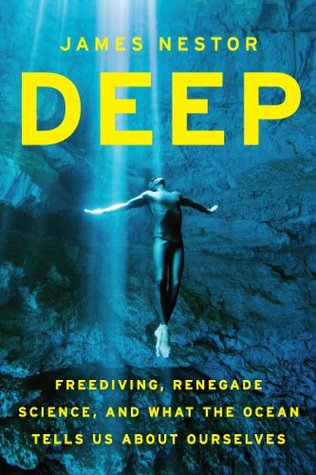Scholander noticed something else: Once his volunteers were underwater, the blood in their bodies began flooding away from their limbs and toward their vital organs. He’d seen the same thing happen in deep-diving seals decades earlier; by shunting blood away from less important areas of the body, the seals were able to keep organs like the brain and heart oxygenated longer, extending the amount of time they could stay submerged. Immersion in water triggered the same mechanism in humans. This shunting is called peripheral vasoconstriction, and it explains how Bucher could dive to below one
...more
Welcome back. Just a moment while we sign you in to your Goodreads account.


